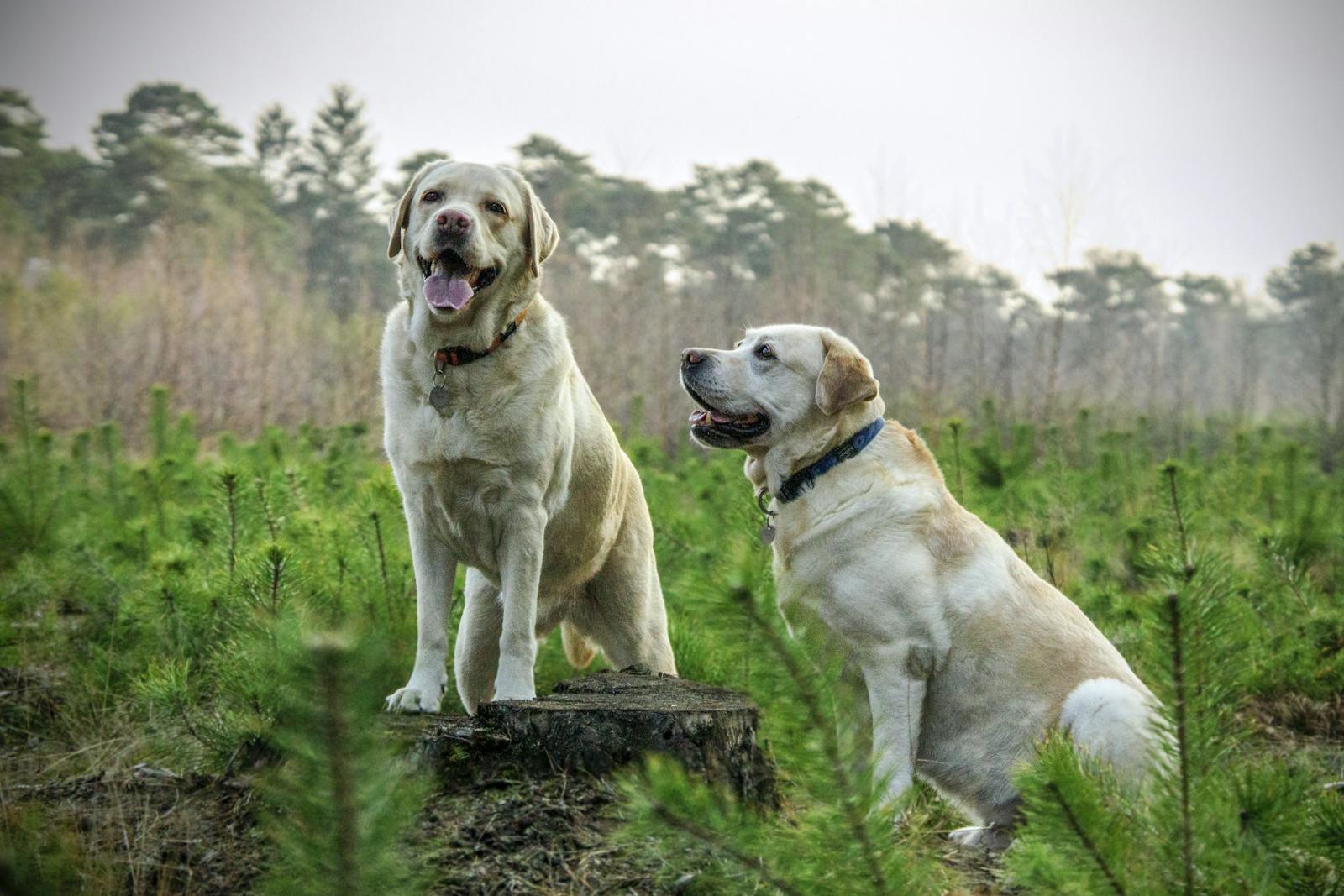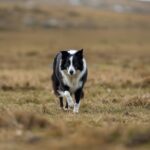A Friendly Guide for East Cornwall Owners
Find practical Dog Walking Tips for Labrador Retrievers with friendly advice on making every walk enjoyable, safe, and rewarding for your energetic pup.
Hello, East Cornwall Lab lovers! Labrador Retrievers light up our lives with their big hearts and wagging tails.
But anyone who shares life with a Lab knows these energetic dogs need more than just a quick spin around the block. They thrive on proper daily dog walks, enrichment, and clear routines.
This guide will share practical dog walking tips for Labrador Retrievers, including local dog walking, choosing a reliable dog walker, and ways to add adventure to your strolls.
Whether you want advice for group dog walks, puppy walking services or are searching for “pet walking near me,” you’re in the right spot.
If you wonder about keeping your Lab content in any weather, you might enjoy reading more about walking your dog in the rain.
Labradors’ energy and friendliness can sometimes surprise even experienced owners. Let’s make daily walks easy, safe, and fun for everyone.
For a helpful overview on the breed, the Labrador Retriever Wikipedia page has extra background.
Get ready for simple, friendly tips you can use right away, whether you’re out enjoying the Cornish coast or counting on expert dog walking services for your beloved Lab.
Understanding Labrador Retrievers: Energy, Personality, and Walking Needs
Labrador Retrievers are friendly, energetic dogs with boundless curiosity and a love for adventure.
If you’re searching for practical dog walking tips for Labrador Retrievers, it’s helpful to first understand what drives your Lab’s spirit and how these traits influence their walking needs.
Whether you’re managing a lively young pup or a full-grown bundle of energy, knowing what fuels your dog’s daily routine will help you create safe, enjoyable walks for both of you.
Why Labradors Need Regular Walking: Focus on Health, Behaviour, and Energy Management
 Photo by Ar kay
Photo by Ar kay
Labradors are famous for their stamina and playful nature. Without regular exercise, these smart dogs can turn to chewing, jumping, or barking from sheer boredom.
A few key reasons why walking is a must for Labs:
- Burns off excess energy: Walks keep their minds sharp and bodies fit.
- Prevents unwanted behavior: Regular activity helps reduce destructive chewing or garden digging.
- Supports physical health: Walking reduces obesity risk and keeps joints healthy.
- Promotes socialization: Meeting new people and dogs helps curb shyness and improves manners.
If you have a busy lifestyle, local dog walking services take the guesswork out of keeping up. Many Labs thrive with group dog walks, making friends and enjoying structured outings that tire them out in the best way possible.
Walks that include other dogs also help reinforce calm behavior, especially when guided by a professional dog walker.
For a deeper look at health perks, this list of top 6 benefits of walking your dog highlights how exercise supports your Labrador’s well-being and happiness.
Temperament Traits That Affect Walks
Labradors are known for their outgoing personalities. They love people, get easily excited by scents and sights, and sometimes forget their size when greeting friends.
Traits that make them special (and a handful on walks):
- Eagerness to say hello: Labs are true social butterflies and will often try to greet every dog and human they pass.
- Strong curiosity: Every leaf and puddle is worth investigating, so walks can zigzag if you’re not prepared.
- High excitement levels: Young Labs especially may pull on the lead or jump with glee.
Integrating puppy walking services into your young Lab’s routine is a great way to set early habits.
A patient, reliable dog walker can reinforce polite walking from the start, keeping spirited dogs focused and safe.
Experts note that giving puppies structured walks builds confidence and makes later walks easier for everyone.
Curious about how early training can shape a Lab? Learn more about dog walking for your puppy and the value of professional guidance during crucial growth stages.
How Much Exercise is Enough?
Labrador Retrievers rarely turn down a walk, but too much activity or too little structure can cause problems.
Most adult Labs need at least 60 minutes of brisk activity daily, split into two walks or combined with time for play and training.
General guidelines:
- Adult Labs: Aim for 1-2 hours per day, split into morning and afternoon daily dog walks.
- Puppies: Short walks of 5 minutes per month of age, gradually increasing as they grow.
- Senior Labs: Gentle daily outings, adjusted for joint health and comfort.
Professional dog walkers often provide regular routines that help Labs burn energy in a controlled, positive way.
If you’re looking to recruit a helping hand, compare local dog walking rates and options for daily or group dog walks.
These services turn “pet walking near me” into an easy solution for busy families or those needing extra support.
Most veterinarians and breed experts agree on these recommendations. For more details, the Labrador Retriever Wikipedia page breaks down exercise needs and breed temperament.
For even more structure, you can explore dedicated dog exercise services in your area to keep your Lab happy and healthy with a customized plan.
By understanding these basics, you’ll be able to get the best out of your Lab’s daily routine, support their well-being, and enjoy every step of your adventures together.
Essential Dog Walking Tips for Labrador Retrievers
Labrador Retrievers bring constant joy and a big dose of energy to every walk. Their excitement for adventure means being prepared is more than just practical—it makes your outings smoother and more enjoyable.
This section rounds up must-have gear, proven strategies for behavior issues, and tips for those unpredictable East Cornwall seasons.
Let’s set you and your Lab up for relaxed, successful walks.
Gear Up: What to Bring for a Labrador Walk

Labradors love to explore, so smart gear is essential for safe, happy strolls. Walking gear keeps your Lab secure, comfortable, and eager for adventure—rain or shine. Here’s what you’ll want to have on hand:
- Harness or well-fitted collar: A harness reduces neck strain and gives you better control if your Lab gets excited.
- Strong lead: Opt for a sturdy lead that suits your grip style—retractable leads work for open spaces, while fixed leads offer more control in busy areas.
- Training treats: Keep a pocketful of tasty, healthy snacks to reward good walking habits and recall.
- Poop bags: Always be prepared! Clean-up is part of being a responsible dog parent.
- Water and portable bowl: Labs put in the miles, so stay hydrated—especially on longer walks or warm days.
- Lightweight coat or reflective vest: West Cornwall weather can turn quickly. A light, waterproof coat keeps your Lab dry without overheating. For tips on how to handle muddy puddles and cloudy days, check out our friendly guide to walking your dog in the rain.
Having the right kit lets you focus on enjoying your time together, not scrambling for supplies mid-walk.
Managing Pulling, Jumping, and Friendly Overexcitement
Every Labrador owner knows the “full-body wiggle” when their Lab greets a friend or finds a new scent.
Their joyful nature is part of their charm, but these big dogs can easily pull an arm or leap right up at strangers if untrained.
Here are practical tips for a smoother walk:
- Teach polite walking: Use clear cues like “heel” and reward calm walking by your side. Stop and stand still if your Lab pulls—no progress means no fun!
- Practice sits and focus: Teach your Lab to sit politely before greeting people or sniffing something exciting.
- Redirect with treats: Got a jumper? Distract your Lab with treats or toys before they reach peak excitement.
- Consistency is key: Practice daily, even for just a few minutes on each walk.
Labradors are smart and pick up training routines quickly, but sometimes a bit of help goes a long way.
Many East Cornwall owners rely on a reliable dog walker or look into group dog walks to reinforce good habits.
Group walks led by a professional dog walker build social skills, teach impulse control, and help strong dogs like Labs learn calmness around new friends.
If you’re struggling to manage your Lab’s enthusiasm, or just want an extra hand, dog walking services can create polite, well-socialised walkers out of even the most exuberant dogs.
Curious about the different options, pricing, or how group sessions work?
Check out local dog walking rates and services for extra support.
Weather Wisdom: Walking in All Seasons
Labrador Retrievers aren’t picky about weather—they want to walk, whatever the sky is doing. Still, comfort and safety are important for both you and your four-legged friend.
Here’s how to keep those daily dog walks enjoyable year-round:
- Hot weather: Avoid midday sun. Early morning or late evenings are best. Bring water and rest in the shade. Labs can get heatstroke, especially if they’re sprinting after a tennis ball.
- Cold snaps: Most Labs tolerate the cold well, but icy paths can harm sensitive paw pads. Shorten walks in extreme cold and use a light coat for extra warmth. Learn more about temperature limits for pets from this helpful guide to cold weather dog walks.
- Wet and muddy days: Don’t let rain spoil your fun. Waterproof gear for both you and your dog makes a big difference. If you need more ideas for handling rainy dog walks and puddle-jumping pups, our best tips can be found in our guide to walking your dog in the rain.
Every Lab is unique, so adjust your routine as needed—older or younger dogs may need shorter outings in harsh weather.
If you ever need a hand balancing fun and safety, professional dog walkers can adapt outings to fit each Lab’s needs, making sure everyone stays happy whatever the forecast.
For even more general info on Labrador Retriever weather tolerance and breed traits, the Wikipedia article on Labradors is a worthwhile read.
Choosing the Right Walking Solution for Your Labrador
Every Labrador is unique, but they all share an ongoing need for regular walks and attention. The choice between taking your Lab out yourself, hiring a professional dog walker, or even picking between solo and group dog walks can feel overwhelming.
The right solution is the one that fits both your Labrador’s personality and your day-to-day schedule.
Here’s what to consider before deciding which dog walking tip works best for your Labrador Retriever.
DIY vs. Professional Dog Walker: What’s Best?

Choosing to walk your Lab yourself or using professional dog walking services each comes with its perks. If you have the time, nothing beats exploring East Cornwall together on your own schedule. You know your dog’s quirks, favorite puddles, and just how quickly they spot a squirrel!
But life isn’t always that simple. Many Lab owners need flexible or extra support, especially for high-energy breeds. This is where a professional dog walker can be a true partner. Professionals bring:
- Consistency—no skipped walks, even on rainy Cornish days.
- Local knowledge, like the best routes and safe, stimulating spots for Labs.
- Extra expertise in handling energetic or unpredictable dogs.
Thinking about finding “pet walking near me”? Look for local dog walking professionals with plenty of experience and good reviews, who know how to keep walks fun but under control, especially with big, bouncy breeds like Labradors. For many families, teaming up with a reliable dog walker means peace of mind and a tired, happy pup.
Dog walking tips for Labrador Retrievers always come back to routine.
Whether it’s you or a trusted pro, keeping up with daily dog walks supports your Labrador’s health, teaches good habits, and helps burn off that endless energy.
Group Walks, Solo Walks, and Puppy Walking Services
Dog walking services today offer much more than just a quick spin around the block. Let’s break down what’s available and see what suits Labradors and their humans best.
Group Dog Walks
- Perfect for social Labradors who love to mingle with other dogs.
- Dogs build confidence and learn better manners.
- A great way for owners who work regular hours to guarantee play and exercise.
- Not all Labs enjoy groups—shy, young, or older dogs might prefer quiet.
- If you’re curious about safety on these walks, read up on Is dog walking risky?.
Solo Walks
- Ideal for Labs who need one-on-one attention or custom routines.
- Great for working on specific training or if your dog is recovering from an injury.
- Solo walks can be more expensive than group dog walks.
- Offers the most personal care and lets walkers match the pace to your dog’s mood.
Puppy Walking Services
- Tailored for the needs of growing Labradors.
- Walks are shorter, safer, and training-focused.
- Puppy walking services help reinforce positive habits from day one.
- These walks give young Labs a confidence boost and lay the groundwork for future outings.
Most dog walking services offer both daily and flexible schedules, so you can pick what fits best.
Consider mixing things up—a solo walk one day and a group dog walk another—to keep your Lab engaged both physically and mentally.
Understanding Dog Walking Rates and Service Value
The cost of dog walking services can feel confusing, but much like any care service, you get what you pay for. Several things affect dog walking rates:
- Length and type of walk (group vs. solo)
- Number of dogs per session
- Experience and qualifications of the walker
- Extras like puppy walking services, training, or pick-up and drop-off
For East Cornwall Lab owners, value matters as much as price. The most important part of a great service is having full clarity.
Reliable dog walkers will always explain what’s included—look for features like free transport, regular updates, or unique puppy care. You deserve to know exactly what your Labrador is getting each day.
Some services offer detailed breakdowns, covering benefits like tailored walks and added peace of mind.
To make informed decisions, you might compare dog walking tips for Akita dogs to see how different breeds and walking needs shape rates.
Still have questions? For the latest pricing and to discover all the flexible dog exercise services available near you, don’t hesitate to Contact Paw-tastic Walks for friendly, expert advice.
For a closer look at the range of walking styles, the Wikipedia page on dog walking covers everything from history to modern services.
Finding just the right routine ensures both you and your Labrador Retriever enjoy every outing, whether you’re exploring solo, making friends on a group walk, or getting your puppy off to a great start.
Conclusion
Daily dog walks turn life with a Labrador Retriever into a true adventure—filled with laughter, muddy paws, and wagging tails.
With the right dog walking tips for Labrador Retrievers, you can channel that legendary energy into healthy habits and lasting memories.
Whether you walk your Lab yourself or count on a reliable dog walker, what matters is regular, happy outings that fit your routine.
If you need an extra hand or a break from the Cornish rain, trusted local dog walking services are ready to help.
Explore flexible schedules, clear dog walking rates, and supportive options like group dog walks or puppy walking services by checking out the dog exercise services on offer.
Keeping your Lab active and content is easier – and more joyful – with the right support from your local community.
For friendly advice or to arrange a meet-and-greet, reach out to Contact Paw-tastic Walks. Labrador life in East Cornwall is meant to be shared—one tail-wag at a time.
For more about the breed’s background, see the Labrador Retriever Wikipedia page. Thank you for reading, and here’s to many more safe, fun-filled adventures with your Lab!













